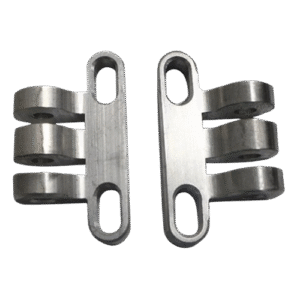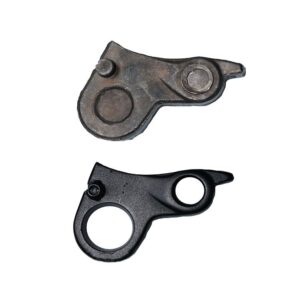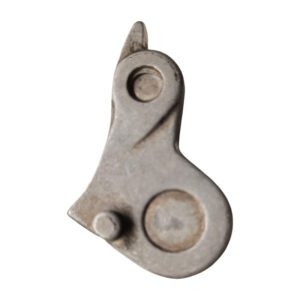What is Drop Forged
What is Drop Forged? Unlocking Strength and Durability
When you need a metal component that can withstand extreme force, impact, and fatigue, the answer often lies in a centuries-old yet highly advanced manufacturing process: drop forging. But what exactly is drop forged, and why is it the preferred choice for critical parts in industries from aerospace to heavy machinery?
In simple terms, drop forging is a manufacturing process where a heated metal billet is placed on a die (a mold) and then struck or “forged” by a matching upper die that is dropped by a powerful hammer. The immense pressure forces the metal to flow and fill the die cavity, taking its precise shape. This process refines the metal’s internal grain structure, aligning it with the part’s geometry, which results in superior strength, toughness, and resistance to impact and fatigue.

Drop Forging vs. Other Methods: Why We Choose Force
Understanding the differences between forging methods helps in selecting the right process for your project.
| Feature | Drop Forging | Open-Die (Free Forging) | Impression-Die (Closed-Die) Forging |
|---|---|---|---|
| Process | A hammer drops onto the metal in a closed die. | The metal is worked between flat or simple dies with no enclosure. | Similar to drop forging, but uses multiple dies for more complex shapes. |
| Dimensional Accuracy | High. The enclosed die creates precise, near-net-shape parts. | Low. The metal is shaped freely, requiring more machining. | Very High. Produces complex, precise parts with minimal waste. |
| Grain Structure | Excellent. Grain flow is contoured to the part’s shape. | Good, but not as refined or specific as in closed-die processes. | Superior. Optimized for the most complex geometries. |
| Cost & Application | Cost-effective for high-volume production of strong parts. | Ideal for large, simple parts like shafts or pre-forming. | Best for high-strength, critical components where performance is paramount. |
Key Takeaway: While open-die forging offers flexibility for large items, and impression-die forging is for ultra-complex shapes, drop forging strikes the perfect balance of high strength, excellent dimensional consistency, and cost-efficiency for high-volume production.
Materials We Can Drop Forge: A Spectrum of Strength
Not all metals are created equal, and the drop forging process enhances the inherent properties of many alloys. We expertly forge a wide range of materials, including:
Carbon Steel & Alloy Steel: The most common choices, offering a vast range of strength, hardness, and wear resistance.
Stainless Steel: For applications requiring excellent corrosion resistance alongside high strength.
Aluminum Alloys: Perfect for lightweight components that need a high strength-to-weight ratio.
Titanium Alloys: Used in the most demanding aerospace and medical applications for exceptional strength and corrosion resistance at high temperatures.
Copper, Brass, and Bronze: Selected for their superior electrical conductivity and corrosion resistance.

Industry Applications and Products: Where Strength Matters
 Drop forged components are the backbone of industries that cannot afford failure. Here are some of the products we manufacture:
Drop forged components are the backbone of industries that cannot afford failure. Here are some of the products we manufacture:
Automotive & Transportation: Crankshafts, connecting rods, axle beams, transmission gears, and wheel spindles.
Benefit: Withstands the constant stress and torque of an engine, ensuring reliability and safety.
Aerospace: Landing gear components, turbine disks, airframe structural parts.
Benefit: Provides the critical strength-to-weight ratio and fatigue resistance needed for flight safety.
Agriculture & Heavy Machinery: Tractor clevis, plow shares, gear blanks, and excavator track links.
Benefit: Resists extreme abrasion, shock loads, and harsh environmental conditions.
Oil & Gas: Valve components, drill bits, wellhead parts, and tool joints.
Benefit: Handles high pressure, corrosive environments, and intense wear.
Hand Tools: Wrenches, hammers, pliers, and sockets.
Benefit: Prevents deformation or breakage under high torque and impact, ensuring tool longevity and user safety.
The Unbeatable Benefits of Drop Forged Products
Choosing drop forging means investing in performance and longevity. The key benefits include:
Superior Strength & Toughness: The forging process refines the metal’s grain structure, making it significantly stronger and more impact-resistant than cast or machined parts.
Enhanced Fatigue Resistance: Forged parts can endure repeated loading and unloading without failing, which is critical for moving components.
Reliability & Consistency: The closed-die process ensures every part is virtually identical, with minimal defects and predictable performance.
Economic Efficiency: While tooling costs exist, the high production speed, material efficiency, and reduced need for secondary machining make it cost-effective for large runs.
Your Trusted Partner for Premium Drop Forging Services
we don’t just understand the science of drop forging—we master the art. We are a leading provider of custom drop forging services, equipped with state-of-the-art technology and a team of experienced engineers.
We support our clients by:
Providing expert consultation on material selection and design for manufacturability.
Producing high-volume, high-quality drop forged components to your exact specifications.
Ensuring stringent quality control throughout the entire manufacturing process.
Offering secondary services like heat treatment, machining, and surface finishing for a complete, ready-to-assemble part.
If your project demands the unmatched strength, durability, and reliability of drop forged components, look no further. Contact us today for a quote and discover how our drop forging expertise can bring your most demanding designs to life.
